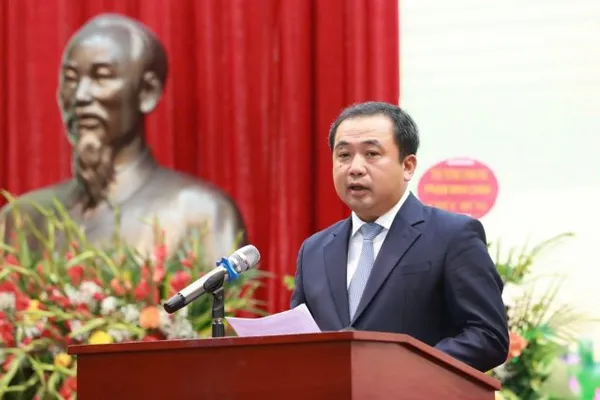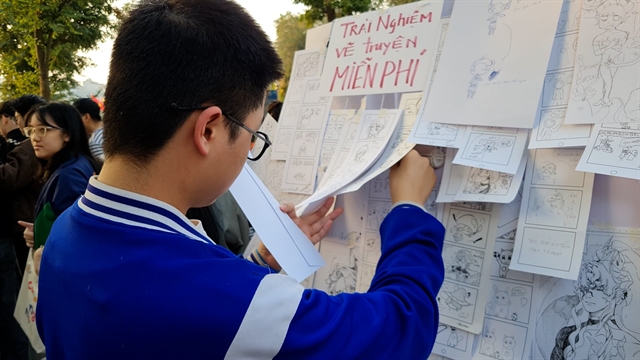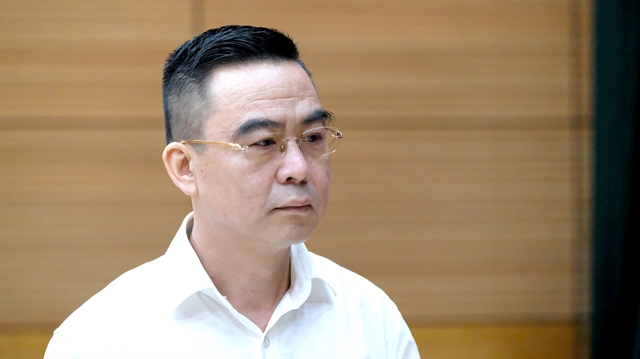 Opinion
Opinion

Meetings with citizens, as well as the settlement of complaints and denunciations, are to be discussed during the upcoming National Assembly session, and is also a topic to be overseen by the Standing Committee. Head of the Central Citizen Reception Committee (under the Government Inspectorate) Nguyễn Hồng Điệp talks to Vietnamnet online newspaper about this issue.

|
| Head of the Central Citizen Reception Committee (under the Government Inspectorate) Nguyễn Hồng Điệp. |
Meetings with citizens, as well as the settlement of complaints and denunciations, are to be discussed during the ongoing National Assembly session, and is also a topic to be overseen by the Standing Committee. Head of the Central Citizen Reception Committee (under the Government Inspectorate) Nguyễn Hồng Điệp talks to Vietnamnet online newspaper about this issue.
A report by the Fatherland Front shows that many provincial leaders have not held meetings with citizens for 18 months. The matter was also mentioned many times during National Assembly sessions. What do you think about this situation?
I think that as social distancing regulations were applied, in 2021 the number of local leaders meeting with their citizens decreased significantly. In some localities, according to the supervision delegations of the National Assembly, many provincial leaders did not meet citizens, but authorised their deputies to do so, or even directors of departments.
Even department-level officials held few meetings with citizens or did it just to have something to report back to the Government. That is irresponsible.
Provincial party secretaries and chairpeople should meet with their people not just to make reports, but to listen to people's feedback on their cases in order to make guidelines and seek solutions.
With complaints and denunciations, party secretaries and leaders of every province want a definitive solution, but there are areas where they are afraid of pointing out and correcting mistakes of others. They are afraid that if they commit to solving issues, they would have to deal with many other problems, so they tend to avoid meeting or speaking with citizens.
However, there are many leaders who have not met with residents at the headquarters during this time because they have go to pandemic-affected areas to solve the daily issues arising due to COVID-19.
Have you heard people complain that meeting provincial leaders is too difficult?
In one citizens’ reception session held by the General Inspectorate, I heard someone say "It's been eight years since I met the vice chairman of the province". Without such meetings of the General Inspectorate, it would be difficult for people to meet the provincial leaders.
Or at a meeting of the then Deputy Prime Minister Trương Hoà Bình with leaders of a locality, the party secretary and the chairman promised to receive the people and completely solve a case. However, later people still came here (the Central Citizens Reception Committee) to complain that they were still not able to meet local leaders, and until now the case has not been resolved.
In many cases, the Central Citizens Reception Committee sends documents to request local leaders to hold dialogues and meet people, but still it was difficult for people to meet local leaders. People come here and say “why is it so easy to come here to meet officials at the central level, but it is so difficult to go back to the locality to meet our leaders?”
Such things make people angry and they keep sending letters to the central level.
During the pandemic, HCM City received people’s opinions online through the form "People ask - Leaders answers". In your opinion, should this model be replicated in other provinces and cities?
I think this model is a very good one. If HCM City and other localities can receive people’s opinions in similar forms, even on weekdays, that would be brilliant.
When people call and text, and leaders listen and answer, they will trust their leaders, even if they don't know what the outcomes will be. Thus, complaints and denunciations of the people will be significantly reduced because they feel that they are respected.
At the recent meeting of the Standing Committee of the National Assembly, the Deputy Inspector General of the Government said complaints and denunciations will continue to be complicated and likely increase after localities loosen social distancing measures. How should this be dealt with?
Due to the pandemic, the work of handling complaints and denunciations has also been suspended. Along with that, the results were not as expected, both for the people and State agencies.
For complicated and prolonged complaints alone, there are over 900 cases that have been reviewed across the whole country.
Complaints and denunciations are now piling up, if there is no response after the COVID-19 pandemic is controlled, the situation will become more complicated. Central authorities will see more citizens coming to complain.
Based on the results of this review, with cases that have been properly resolved, the agencies will agree to answer, explain, and mobilise people to comply accordingly. If the cases have not been properly resolved, the locality will review by itself, or the Government Inspectorate will report to the Prime Minister to assign ministries and sectors to take charge of the review.
In addition, in my opinion, if the pandemic prevention and control work is not done well, new complaints and denunciations related to unfair and poor implementation of support policies might arise.
Therefore, the General Inspectorate has assigned the Central Citizen Reception Committee and local departments to review the situation and develop a plan. Particularly, the Central Citizen Reception Office has developed a plan to hold citizen meetings after the pandemic is controlled, as well as coordinate with localities to review cases.
We have proposed the General Inspectorate to draft and submit to the Government a Decree on the national database on complaints and denunciations to avoid transferring applications, causing difficulties for people and agencies to settle issues, and complicating the situation.
We also asked the General Inspectorate to direct the strengthening of meeting at the southern Central Citizen Reception headquarters and online.
As an officer with many years of experience in handling complaints and denunciations, can you share some of your experience?
In my opinion, in order for complaints and denunciations to decrease, all levels and branches from the central to local levels must agree on four things.
The first is to resolve problems completely. That is, to focus on solving the case properly, not just to complete the responsibility of the agency.
The second is to explain to the end. If the agency meets people, properly solves the case according to the law, but people still continue to complain, they should explain and explain again. We can’t ask people to be as knowledgeable as officials.
The third is support. For example, when acquiring land for socio-economic development affects the interests of the people, leaving them without jobs, then leaders should support them to the end, ensuring people's welfare.
The fourth is to handle violations. People who commit violations will be handled, but more importantly, the officials who commit violations will have to be dealt with properly. We can’t accept the fact that if an official violates the laws, he/she will be transferred to another position equivalent or even higher.
In order to do a good job, in addition to perfecting the law, publicity and transparency of the activities of state agencies are very important.
When implementing socio-economic development projects, officials have to listen to people and ask for support if affected people do not agree with such projects/plans. As for those tasked with serving the people yet acting as they have the power to impose and coerce, the consequences should be strict. VNS